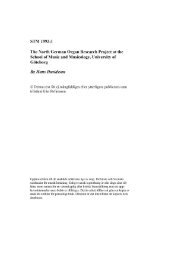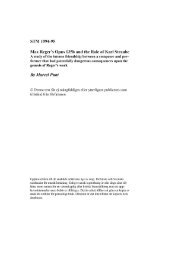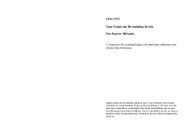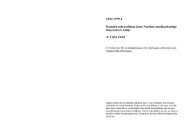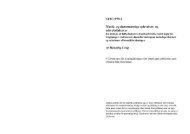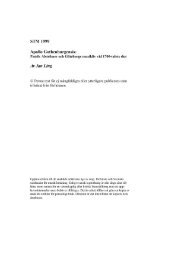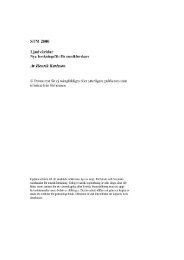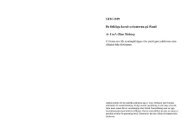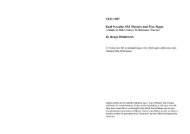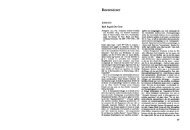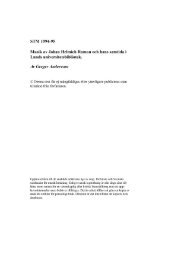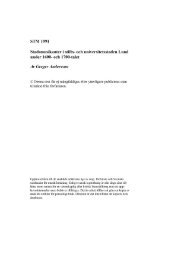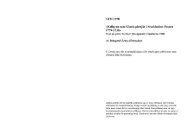Nicolai
Nicolai
Nicolai
You also want an ePaper? Increase the reach of your titles
YUMPU automatically turns print PDFs into web optimized ePapers that Google loves.
<strong>Nicolai</strong> Hartmann and his philosophy of music<br />
By Robert Carroll<br />
In an essay entitled Om musik och mening, STM 1976/2 (pp. 5-18), Ingmar<br />
Bengtsson writes, "Intresset för vissa grundläggande musikfilosofiska och musik-<br />
estetiska frågor, inte minst sådana avseende 'mening', 'innehåll', 'förståelse', har<br />
alldeles påtagligt blossat upp på nytt-och på nya sätt-just under 1970-talet."<br />
Discussing the understanding of music in the light of ontology, semiology, and<br />
hermeneutics, Bengtsson refers to a number of thinkers, continental and other.<br />
One of these is the German philosopher <strong>Nicolai</strong> Hartmann (1882-1950), whose<br />
analysis of the "Seinsweise und Struktur des ästhetischen Gegenstandes" and theory<br />
of strata are mentioned (Bengtsson pp. 12, 16). It is my intention to follow up<br />
with a fuller presentation of Hartmann and his philosophy of music for Scandi-<br />
navian readers.<br />
Hartmann came from Riga and was first a student of medicine and classical<br />
philology. He later pursued philosophical studies at Marburg, then a center of<br />
Neo-Kantianism under the leadership of Hermann Cohen and Paul Natorp. He<br />
was also active in Cologne, Berlin, and Göttingen. Hartmann was a prolific writer<br />
in almost all areas of philosophy and his production reveals scholarly penetration<br />
of an astounding scope and breadth. His sentences, often short and pithy, are a<br />
model of clarity and logic, contrasting sharply with the long-winded and unwieldy<br />
writing of much German philosophy, past and present. Also typical of Hartmann<br />
is an unusually keen sense for the organization and systematizing of his material.<br />
Hartmann broke away from the Neo-Kantian school and forged his way in the<br />
direction of a new critical ontology. A certain influence from the phenomenolo-<br />
gists can be discerned, especially Edmund Husserl and Max Scheler. Hartmann<br />
did not have too much in common with the "philosophy of existence" as it was<br />
represented e.g. in the thought of Karl Jaspers and Martin Heidegger. He rejected<br />
the idea that anxiety and death are privileged sources of philosophical insight.'<br />
Hartmann was not given to mysticism but wrote in a matter-of-fact sort of way,<br />
conceiving his ontology to be a universal science. His oeuvre has an encyclopedic<br />
character-in the tradition of Aristotle and Hegel.<br />
1 "Das metaphysische Gaukelspiel der Angst, gesteigert durch die Unmoral zuchtloser Selbst-<br />
quälerei, ist die unversiegbare Quelle endloser Irrung. Es berührt wunderlich, wenn man sieht,<br />
dass ernsthafte Denker in der Durchbildung philosophischer Theorien diesem Gaukelspiel ver-<br />
fallen und die Angst zum Ansatz der Selbstbesinnung auf das Echte und Eigentliche des Menschen<br />
machen ... So Martin Heidegger in seiner bekannten Analyse der Angst; und zwar mit aus-<br />
drücklicher Bevorzugung der Todesangst. Er folgt darin dem unseligsten und raffiniertesten aller<br />
Selbstquäler, den die Geschichte kennt, Sören Kierkegaard." (Zur Grundlegung der Ontologis, p.<br />
197.) See also Hartmann's criticism of Heidegger's "Seinsfrage" in the same book-the chapter<br />
entitled "Ein heutiger Versuch. Fehler im Ansatz" (pp. 43-46).



